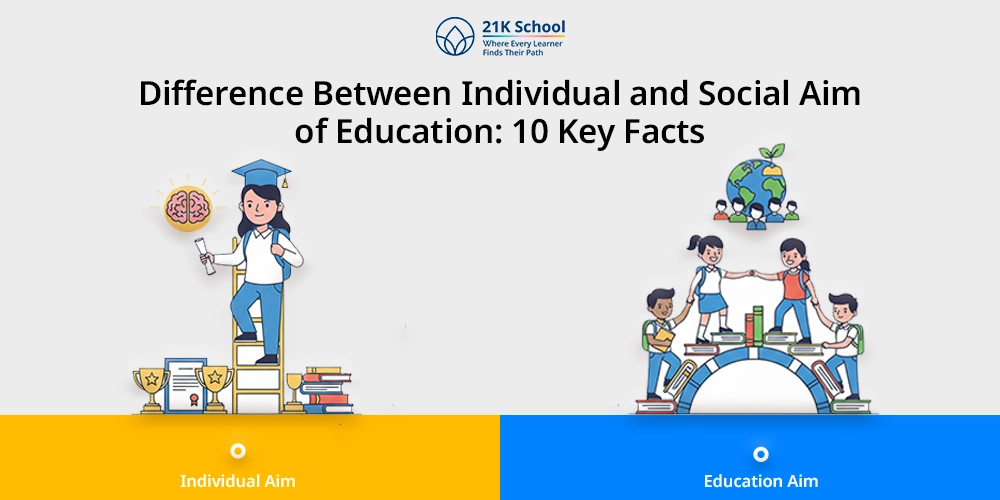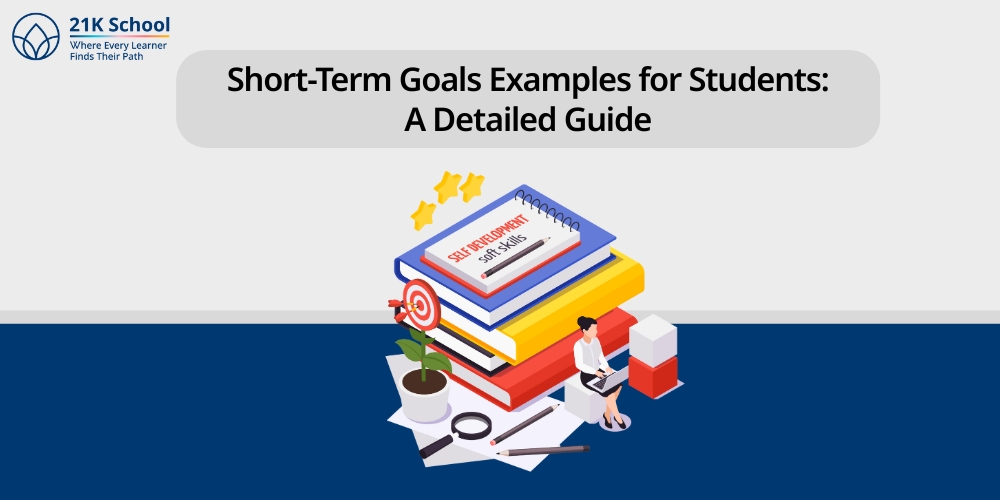
Short term goals are very important for a student as goal setting is the first step toward student success.
Big goals are broken down into smaller, more actionable steps that give students confidence and direction – and that feeling of accomplishment that drives bigger goals.
So for now short-term goals are time management, study plan preparation, time management, healthy habits etc. Short-term goals are not only for students’ education but also for future planning/preparation.
Table of Contents
- What is the Short-Term Goal?
- Top 16 Examples of Short-Term Goals for Students
- 1. Effective Time Management
- 2. Look at the Study Schedule
- 3. Achieve Good Marks
- 4. Daily Exercise
- 5. Drink Plenty of Water
- 6. Build Reading Habit
- 7. Organise Everything
- 8. Start Saving Money
- 9. Develop Social Skills
- 10. Learn New Skills
- 11. Improve Communication Skills
- 12. Eat Healthy Food
- 13. Learn Another Language
- 14. Complete All Your Tasks on Time
- 15. Develop Hobbies
- 16. Grow/Create Healthy Habits
- Conclusion
What is the Short-Term Goal?
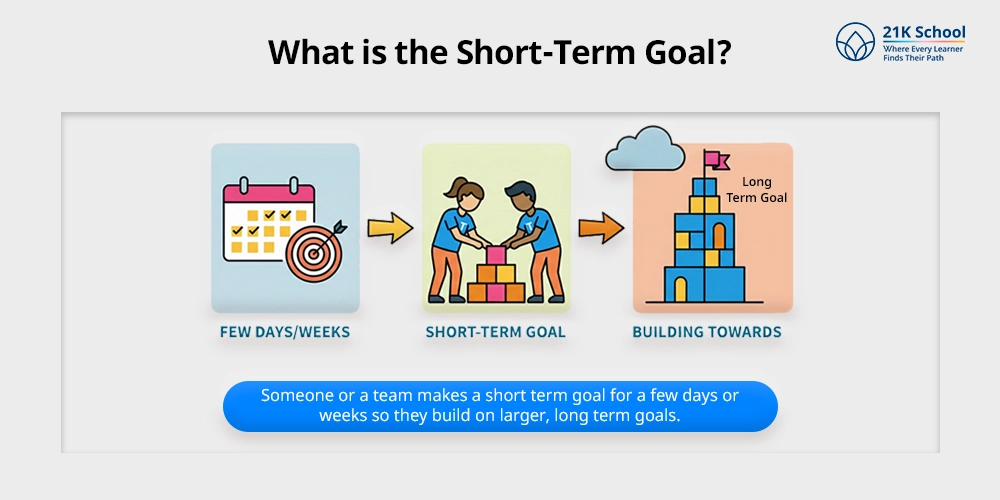
Someone or a team makes a short term goal for a few days or weeks so they build on larger, long term goals.
Then they get students focused, habits formed and move on to higher learning goals – grades, skills or exams. But those are best framed as strategies and methods of learning.
That’s a short goal – something that should be attainable, relevant and time bound – something that can be easily achieved instead of some unrealistic long term goal like passing final exams. So students should make short goals for academics as well as for confidence and attention.
Top 16 Examples of Short-Term Goals for Students
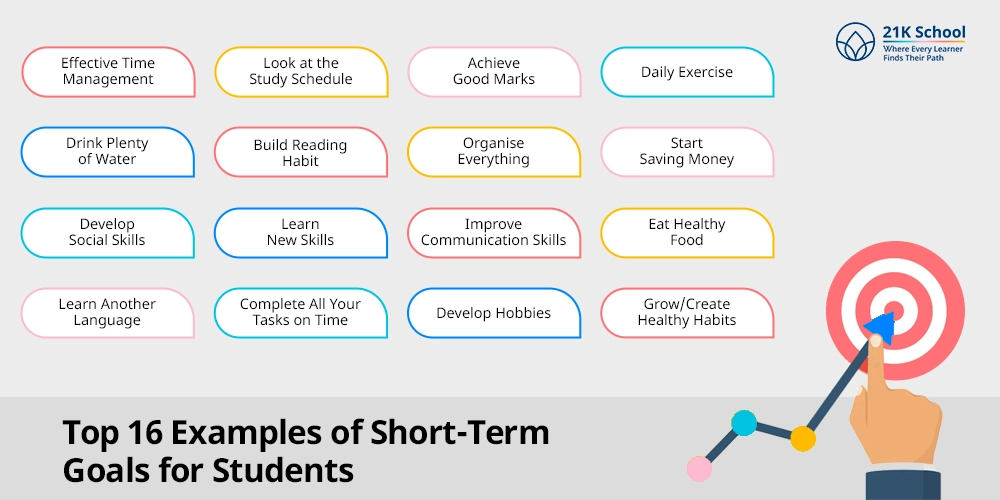
For students short-term goals are concrete targets that can be met quickly. For the students it means balancing schoolwork with personality development – habits that last. Some examples of short-term goals for students are mentioned below.
1. Effective Time Management
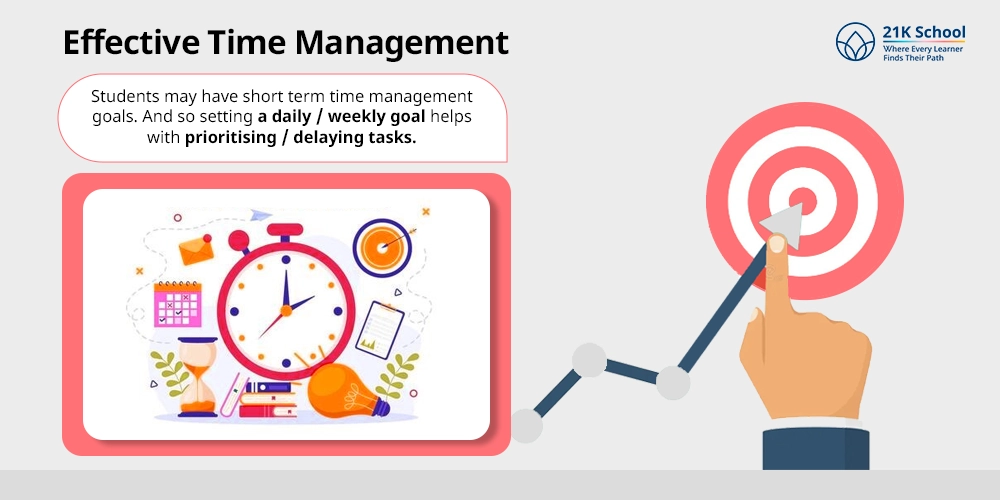
Students may have short term time management goals. And so setting a daily / weekly goal helps with prioritising / delaying tasks. For two weeks, a student may plan study time, breaks/extracurricular time and time saved from social media.
In general this is important – poor time management leads to stress and poor marks. It’s good for discipline, last-minute cramming, freeing up time for rest or hobbies – good for productivity and academic performance.
2. Look at the Study Schedule
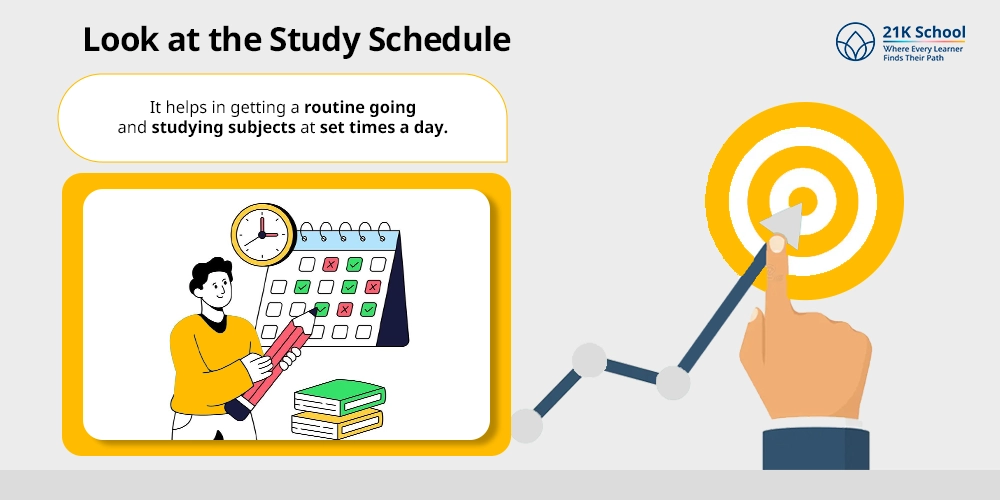
Making a study schedule is another short-term goal for students. So that means getting a routine going and studying subjects at set times a day.
So for one month, you could spend 45 minutes after school on Maths and Science – if you were learning well. It also makes skewed attention in a world of digital distractions a habit not a chore – memory retention, subject confidence and exam preparation.
3. Achieve Good Marks
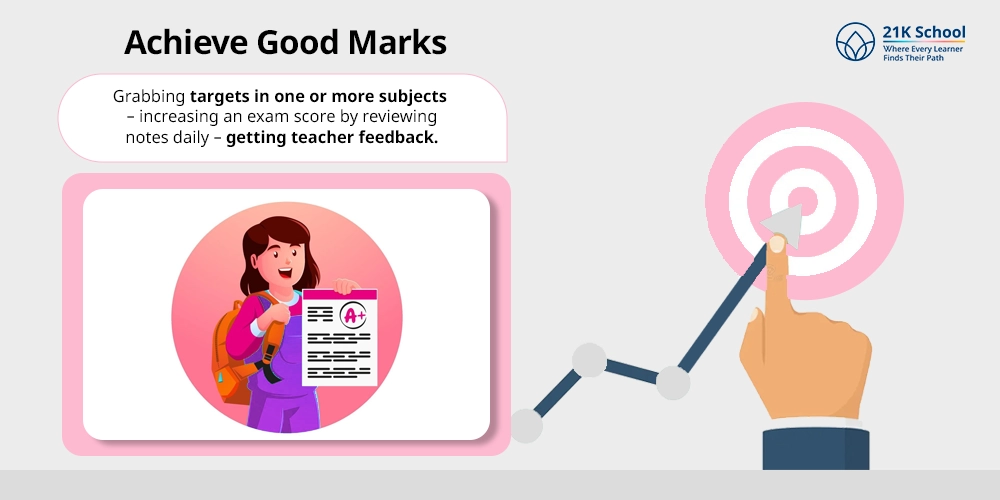
Good marks are another short-term goal students can set. Grabbing targets in one or more subjects – increasing an exam score by reviewing notes daily – getting teacher feedback.
In general it means measurable but not too demanding academic benchmarks, active learning, spotting the weak spots early for better chances of scholarships or advanced classes and slowly teaching resilience.
Explore how to get good marks in exams.
4. Daily Exercise
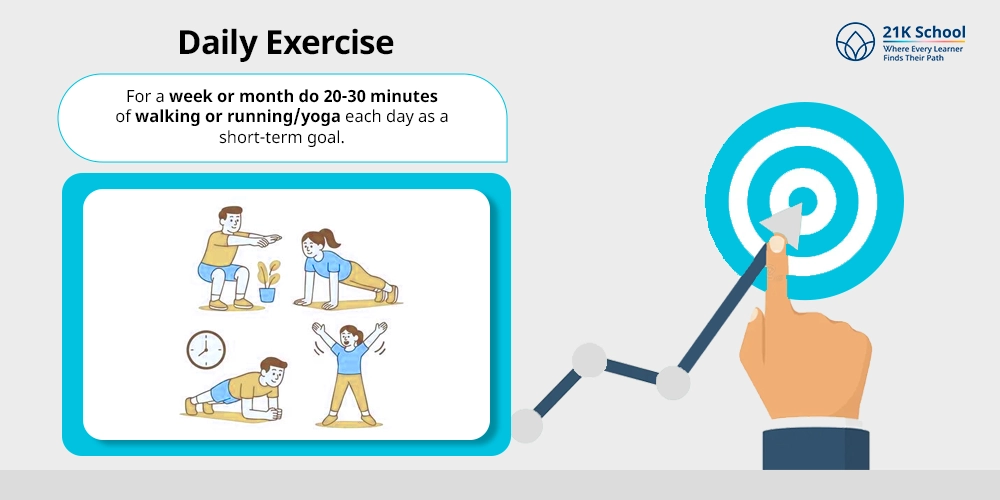
For a week or month do 20-30 minutes of walking or running/yoga each day as a short-term goal.
For students, exercise means more than fitness. In students it releases endorphins to help with exam anxiety and study concentration, good sleep quality and breaking sedentary desk hours to give more energy & mental well being in children.
5. Drink Plenty of Water
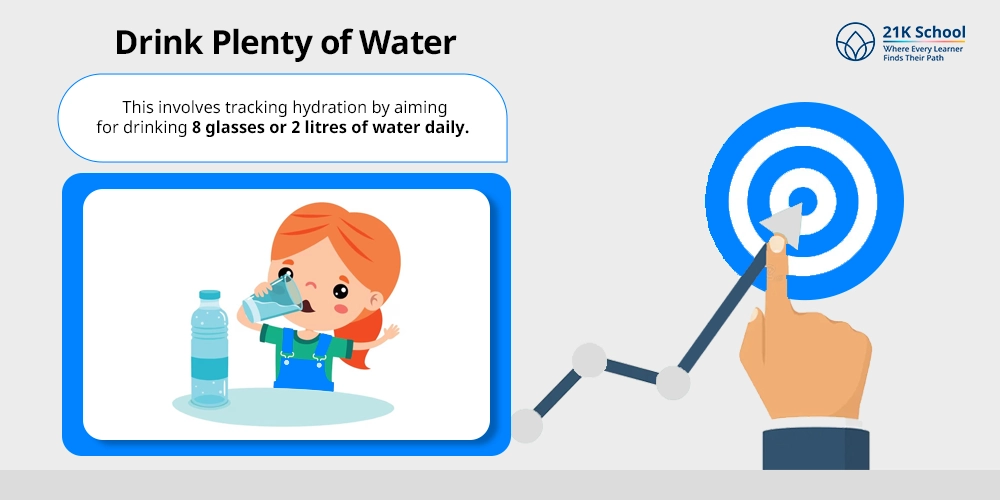
This involves tracking hydration by aiming for drinking 8 glasses or 2 litres of water daily. Some students may make it a short-term goal to drink water.
Drinking lots of water improves brain function and cognitive development of children – important for students with cognitive demands like problem-solving or memorisation; Prevents fatigue & headaches and poor focus & is a very easy wellness habit – good for your physical health.
6. Build Reading Habit
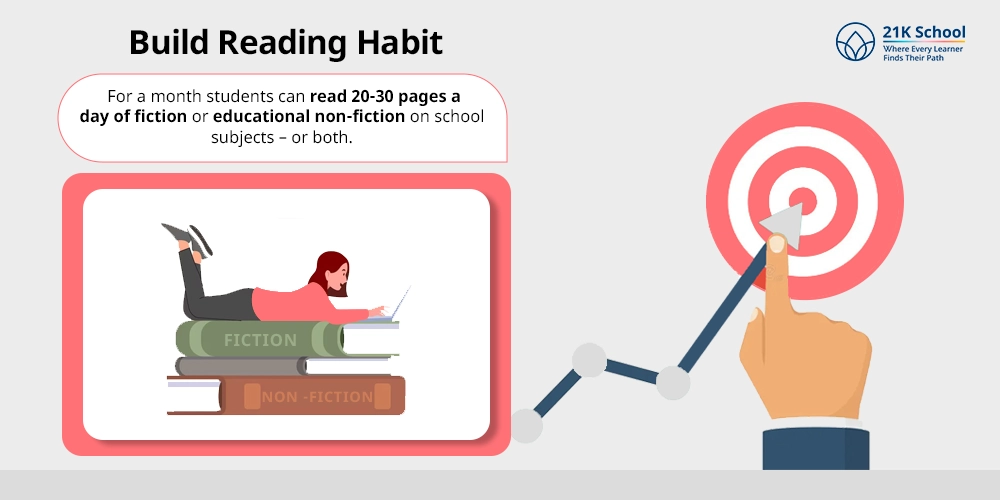
Students may also establish short-term reading habits. For a month students can read 20-30 pages a day of fiction or educational non-fiction on school subjects – or both.
This helps with vocabulary, critical thinking and empathy building in academic essays/discussions. It stops short-attention span trends like scrolling and it makes learning for life and it makes history or chess more fun!
7. Organise Everything
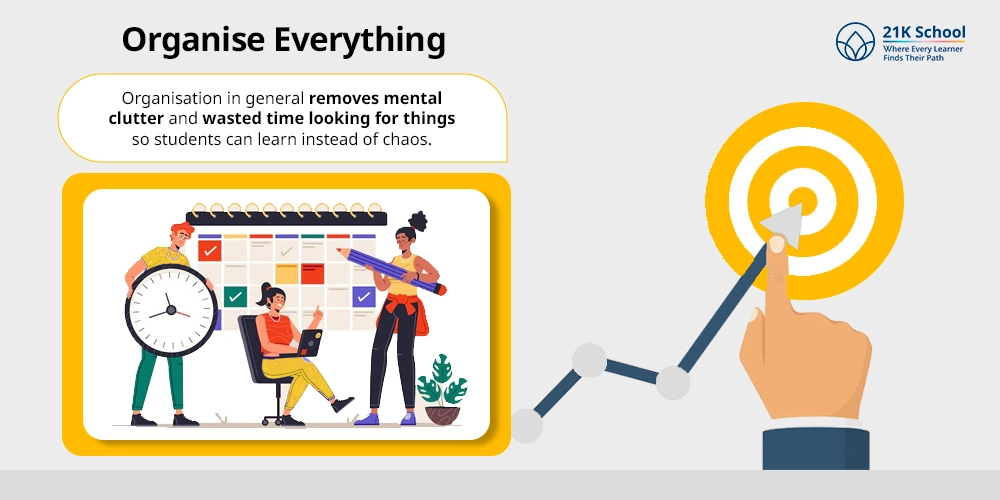
Also, organisation may be a useful short-term goal for students too. Give yourself a weekend to sort out study spaces, notebooks etc.
Organisation in general removes mental clutter and wasted time looking for things so students can learn instead of chaos. And it teaches responsibility and lessens stress at those finals and later in life for professional things like project management.
8. Start Saving Money
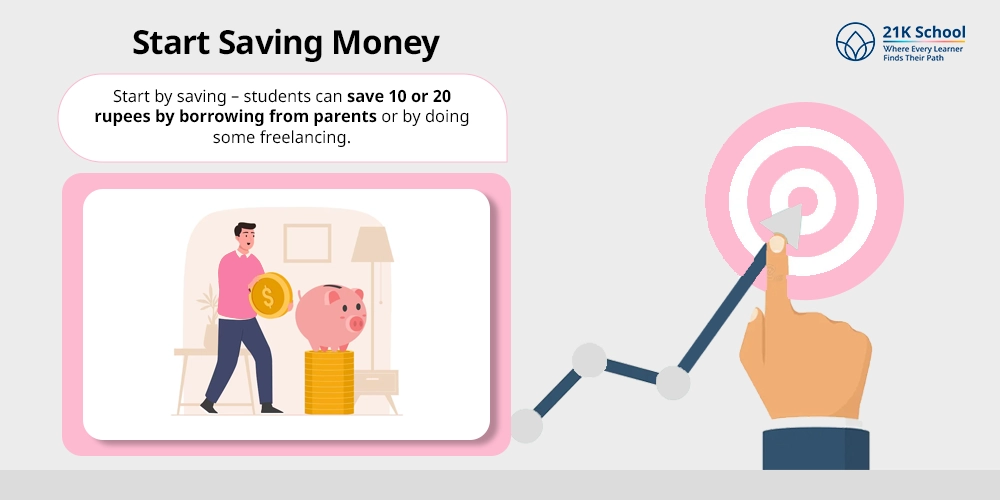
Start by saving – students can save 10 or 20 rupees by borrowing from parents or by doing some freelancing.
For students it’s early financial literacy – delayed gratification and budgeting among gadget temptations; it gives you independence – no more relying on parents for extras – and it saves money.
9. Develop Social Skills
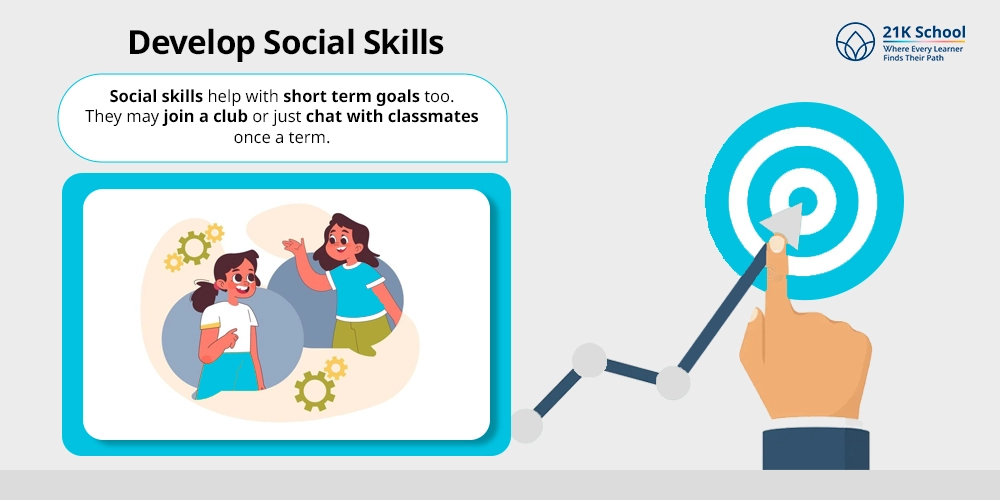
Social skills help with short term goals too. They may join a club or just chat with classmates once a term.
Group projects or debates for example require social skills. They keep them out of online rich world, they put you in contact with people for your next career. They make you friends & less shy in social situations.
10. Learn New Skills
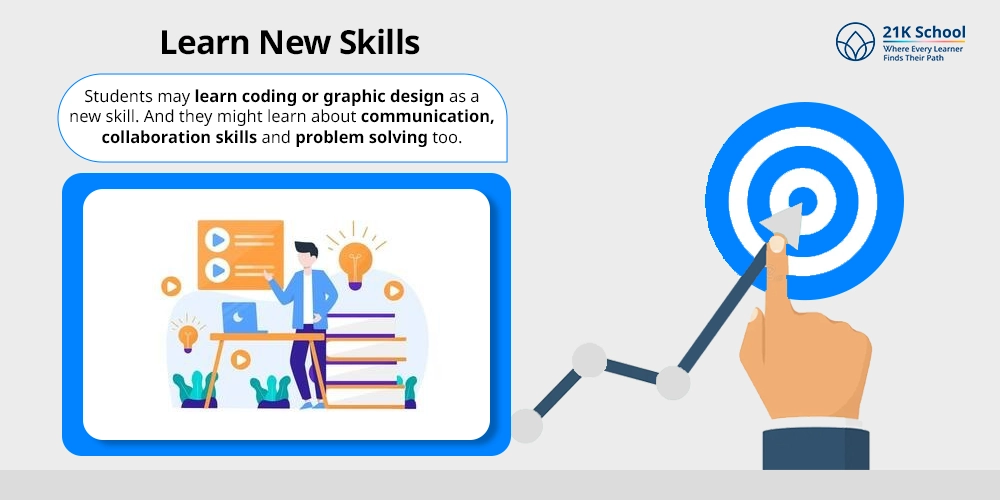
Students may learn coding or graphic design as a new skill. And they might learn about communication, collaboration skills and problem solving too.
New skills help students in a changing job market, they become creative outside of core subjects and have a sense of achievement in tackling academic problems from another angle. New skills help students set short-term goals.
11. Improve Communication Skills
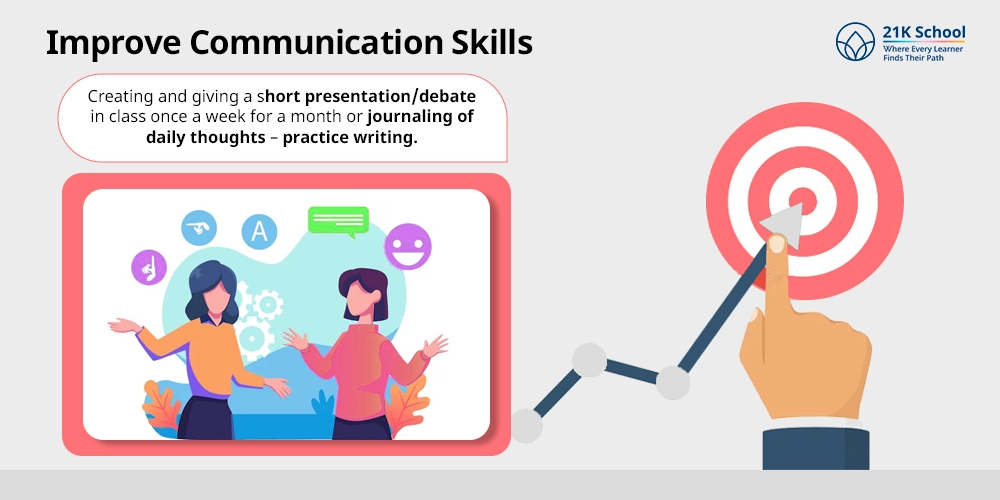
Creating and giving a short presentation/debate in class once a week for a month or journaling of daily thoughts – practice writing.
Essays, interviews and teamwork take communication skills. It helps students express ideas better, public speaking confidence to overcome shyness and relationships with peers / teachers to get better recommendations / jobs.
12. Eat Healthy Food
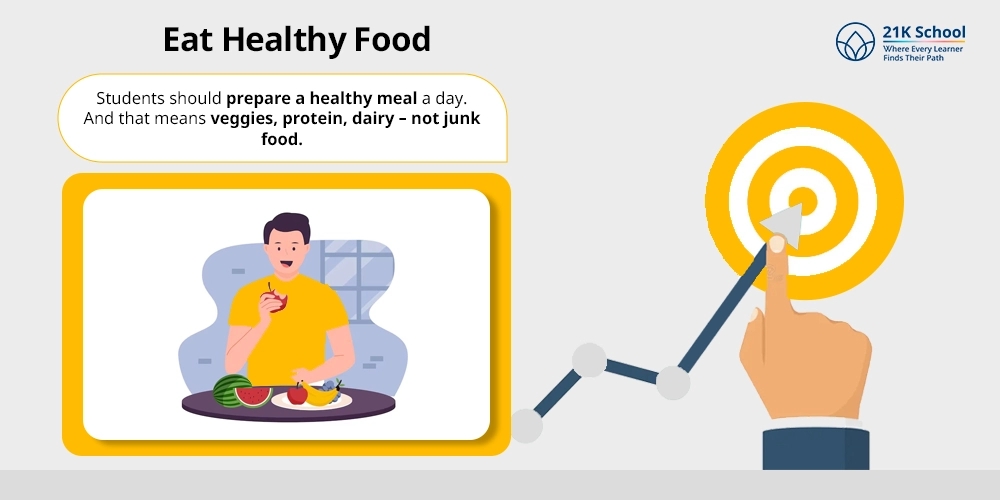
You can set a short term goal by eating healthy food. Students should prepare a healthy meal a day. And that means veggies, protein, dairy – not junk food.
For students – energy for long study sessions, mood for coping with school pressures, flu season immunity for avoiding health dips – it counters junk food reliance from the rush of life for long term health & cognitive function.
13. Learn Another Language
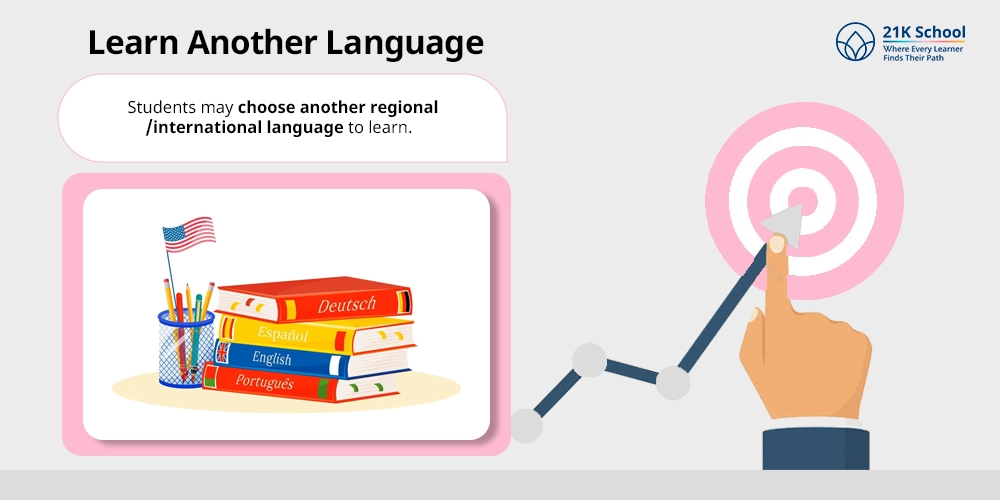
So learning another language is a good short term goal for students. Students may choose another regional/international language to learn.
Learn a language skills and multitasking exposes cultures to the outside world.
But increasingly it’s also useful for study abroad or for work, and the short-term gains are cognitive flexibility and diverse learning.
14. Complete All Your Tasks on Time
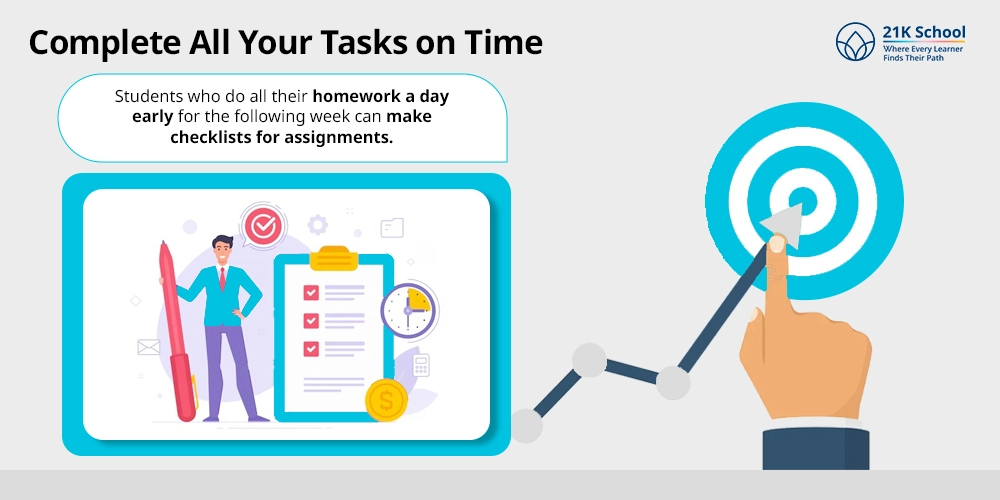
Getting things done on time is another short term goal students may have. Students who do all their homework a day early for the following week can make checklists for assignments.
Finished work on time relieves students stress of piled-up work, time perception and buffer time for revisions – reactive studying becomes proactive achievement.
15. Develop Hobbies
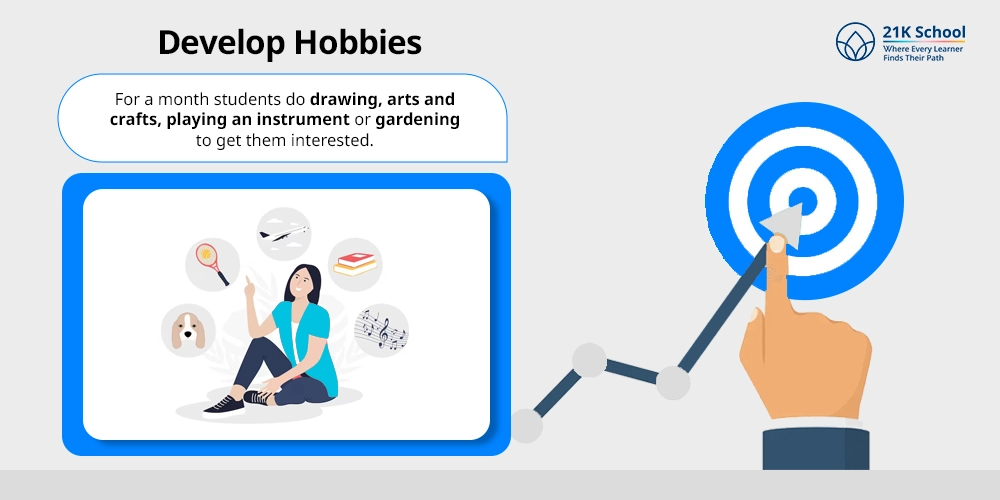
New hobbies give you a short-term goal. For a month students do drawing, arts and crafts, playing an instrument or gardening to get them interested.
But like hobbies which take your mind off of academics, creative thinking for problem-solving skills in classes, profiles for applications, applications, etc. They give joy, identity above grades, avoid burnout and balance in life skills / perseverance.
16. Grow/Create Healthy Habits
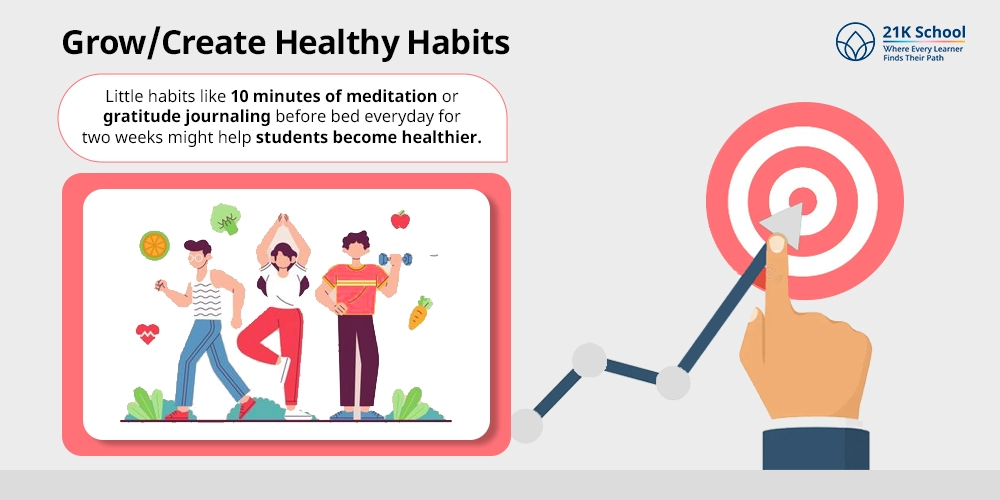
A healthy habit is another way to make short-term goals. Little habits like 10 minutes of meditation or gratitude journaling before bed everyday for two weeks might help students become healthier.
Against the high-stress student lifestyle this is the aim on all levels – physical, mental and emotional health. You get more sleep, more positivity and resilience, etc – it helps with academic as well as personal growth.
Conclusion
However, short-term goals also help the student – they change big long-term aspirations to small goals which give direction, motivation and confidence.
By breaking bigger goals like exams or life skills down into manageable steps students beat procrastination and stress and celebrate little wins that build momentum.
Time management, study timetable, daily exercise, hydration and reading – the examples go beyond academics. And they teach strategies, money skills and hobbies to prepare students for the future.

